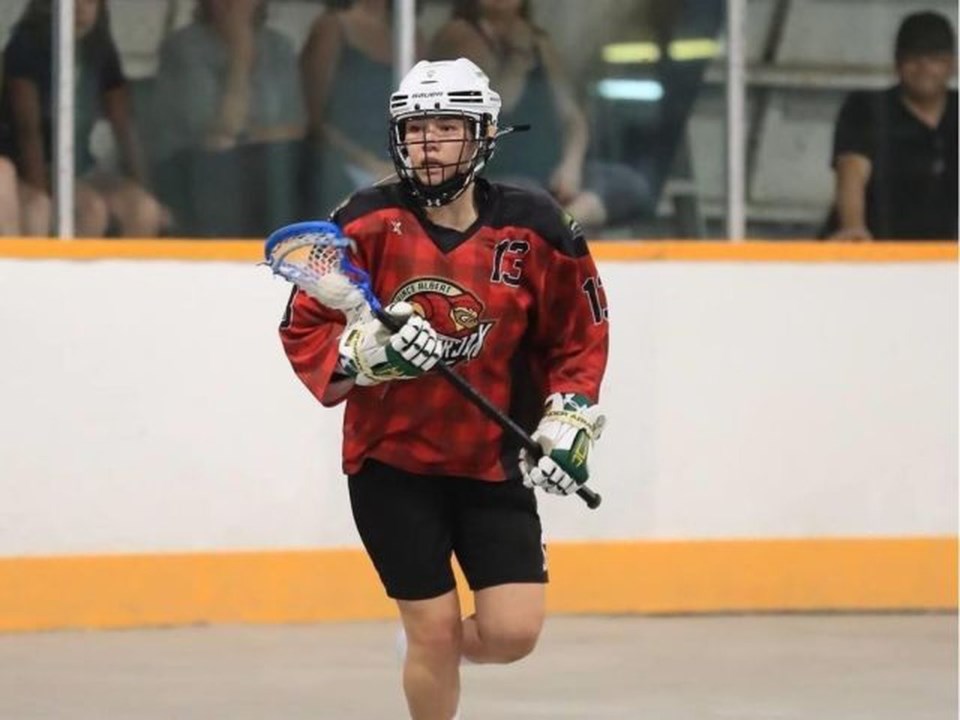Like their Olympic counterparts, Saskatchewan’s Indigenous athletes training for the North American Indigenous Games (NAIG) must wait another year to compete, thanks to COVID-19.
The Games were to be held in Nova Scotia July 12 to 18; on March 25, organizers announced the week-long event will be cancelled and postponed due to the pandemic. They're now working to host the games in 2021 in Halifax.
When box lacrosse player Annakah Ratt heard the news, she was unsure if she’d be allowed to compete a year later, due to age restrictions.
“Yeah, it was stressful,” she said. “There were a lot of questions I had as a 17-year-old, like, ‘am I still able and eligible to play?’ Because I'll be 18 soon, and then I'll be 19 (in 2021). What does that mean for me?”
Luckily, the age limit for an athlete to compete at NAIG is 19 years old during the calendar year of competition.
Fiona Kirkpatrick Parsons, chair of the Games, confirmed to the Leader-Post that athletes who were set to age out next year, i.e. turn 20, will still get a chance to compete.
“We will not penalize anyone for turning 20, for instance, if that happens next year,” she said.
Ratt, from Prince Albert, is a member of the Peter Ballantyne Cree Nation.
This year's Games were to be her second time representing Saskatchewan as a member of its U19 female box lacrosse team; she played on the team at the 2017 Games in Toronto.
The postponement also has her wondering about how this year’s squad will handle the delay.
“Will our team still be the same? How will that affect our team chemistry? Because we all kind of just met each other,” she said.
This year’s team was hoping to take care of unfinished business from 2017: Reach the podium for a medal. It was 2-2 in round robin play, but lost both of its elimination-stage games.
“We can definitely take some of our rough patches and mistakes … to be mindful of our games ahead, and see what we need to improve on,” she said.
The 20 different players — 16 regulars, two goalies and two alternates — were practicing once per month, before the pandemic hit Canada. They had started assessing “where everyone's skills were,” Ratt said.
Now she and the others are confined to individual workouts at home, for the most part. She’s lucky her two younger brothers play lacrosse, giving her a chance to work on passing and hand-eye co-ordination.
They can also bank on the fact NAIG will not go ahead in 2020, even if the virus lets up and the curve of infections begins to flatten.
“We have taken this year off the table. It is 2021 that we're working on,” Kirkpatrick Parsons said.
Tournament organizers are still aiming for July, but they don’t have fixed dates, yet. “You can imagine working on a postponement of this scale, and we're talking almost 5,300 participants; it's not just a simple matter of moving the dates,” she said.
Kirkpatrick Parsons said the delay caused by the virus affected everyone in Halifax.
“It was like we were about to hit the sprint part of a long run, and someone threw a stick in front of us, and we're like 'oh no!' But … we're picking ourselves back up,” with an eye to next year, she said.
As of Wednesday morning, Nova Scotia had 517 cases of COVID-19 infections; the virus there has killed three people. Canada’s total number of infections is 27,540, with 954 deaths due to the virus.
On March 24, the International Olympic Committee chose to cancel and postpone the 2020 Summer Games in Tokyo, Japan to 2021.
Saskatchewan has twice played host to NAIG: In 1993, Prince Albert hosted the event; in 2014, Regina hosted it.




